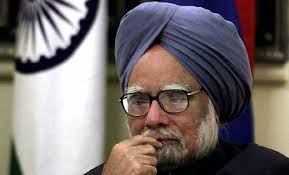
India, which paid about USD 170 billion last fiscal for importing oil, is renewing imports of the fuel from Iran as unlike imports from other countries, it pays the Persian Gulf nation in rupees.
"Oil (imports) is one of the components responsible for CAD. Prime Minister has told us to save USD 25 billion in import bill. As of today, we have pieced together a plan to save USD 22 billion in import bill," Oil Minister M Veerappa Moily told reporters here.
A large part of the plan includes restarting import of oil from Iran. As US and western sanctions blocked all payment routes, India pays Iran in rupees in a Uco Bank branch in Kolkata.
Officials said if India was to import 10 or 11 million tonnes oil from Iran this fiscal, it could save a minimum of USD 10 billion in foreign exchange outflow. India had last fiscal imported 13.1 million tonnes of oil from Iran.
India has been, since July 2011, paying in euros to clear 55 per cent of its purchases of Iranian oil through Ankara- based Halkbank. The remaining 45 per cent due amount was remitted in rupees in accounts Iranian oil company opened in Kolkata-based Uco Bank.
Payments in euro through Turkey ceased from February 6 this year and now Iran is paid only in rupees. Rupee payment helps save foreign exchange outgo, thereby reducing CAD.
Moily refused to divulge details of his plan to cut oil import bill but said the savings planned will be 1 per cent of the GDP.
India, which in June won another 180-day waiver from the US sanctions after it cut crude oil imports from Iran by over 27 per cent, did not buy any oil from the Persian Gulf nation in first four months of current fiscal as insurance firms refused to provide cover to refiners processing Iranian oil.
Imports have, however, resumed this month with Mangalore Refinery and Petrochemicals Ltd (MRPL) getting the first shipload on August 17.
Indian Oil Corp (IOC) and Hindustan Petroleum Corp Ltd (HPCL) are likely to follow suit shortly while private sector Essar Oil, the other customer of Iranian oil, has continued to import oil from Tehran.
India had in 2012-13 imported 13.14 million tonnes of crude oil from Iran, down from 18.11 million tonnes of 2011-12. Iran was till 2010-11 India's second largest supplier after Saudi Arabia but has since slipped to the sixth place.






Comments
Add new comment